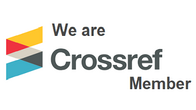Karakteristik pembelajaran BIPA di UIN Syarif Hidayatullah Jakarta
Abstract
Learning a language in a country indirectly teaches the culture in it. However, each place of learning BIPA has different characteristics. This difference in characteristics can have positive and negative impacts. This paper aims to examine how BIPA is learning at UIN Jakarta. This research belongs to the descriptive qualitative type by describing the research findings using text directly. The data collection technique in this study is done by recording, documenting, and interviewing BIPA teachers. The data in this study were obtained from BIPA teachers, BIPA learners, and the results of BIPA learning activities. The data obtained is presented qualitatively descriptive in detail. It was found that BIPA UIN Jakarta has the characteristics of implementing Islamic values in its learning activities. Implementing Islamic values is carried out through learning activities outside the classroom through field trips to Islamic boarding schools. In addition, introducing religious events in pesantren provides Islamic insights to BIPA learners. The evaluation shows that the listening, reading, and speaking skills of UIN Jakarta BIPA learners are very satisfying. However, the writing skill scores still need improvement to achieve good assessment standardization.
Keywords
Full Text:
PDFReferences
Amalia, D. (2023). The use of verb valency patterns in the Indonesian monolingual learner’s dictionary. Lexicography, 10(1), 38–58. https://doi.org/10.1558/lexi.24995
Ediwarman. (2022). The Global teaching practices of Bahasa Indonesia. Eurasian Journal of Applied Linguistics, 8(3), 312–320. https://doi.org/10.32601/ejal.803025
Febrianti, L. Y., Devina, & Ningsih, R. Y. (2021). BIPA for business communication learning model development through MOOC. IOP Conference Series: Earth and Environmental Science, 704(1). https://doi.org/10.1088/1755-1315/704/1/012033
Jannah, R., Yanti, P. G., Hikmat, A., & Solihati, N. (2021). Learning Indonesian for Foreign Speakers (BIPA) Based Teaching Materials Local Wisdom. ACM International Conference Proceeding Series. https://doi.org/10.1145/3516875.3516879
Jubba, H., Pabbajah, M., Abdullah, I., & Juhansar. (2021). Reorienting Moral Education for Millennial Muslims: The Changing Role of Islamic Boarding Schools in Indonesia. Islamic Quarterly, 65(3), 423–441. https://www.scopus.com/inward/record.uri?eid=2-s2.0-85136086010&partnerID=40&md5=109c07cec27c3bbdfa2ddc2e765aec35
Kosim, M., Muqoddam, F., Mubarok, F., & Laila, N. Q. (2023). The dynamics of Islamic education policies in Indonesia. Cogent Education, 10(1). https://doi.org/10.1080/2331186X.2023.2172930
Mardasari, O. R., Susilowati, N. E., Luciandika, A., Minerva, P., & Yanhua, Z. (2022). New Designed Technology-Based Textbook of Indonesian for Foreign Speakers (BIPA). Journal of Higher Education Theory and Practice, 22(8), 105–113. https://doi.org/10.33423/jhetp.v22i8.5326
Mediyawati, N., Young, J. C., & Nusantara, S. B. (2021). U-Tapis Automatic Spelling Filter As An Effort to Improve Indonesian Language Competencies of Journalistic Students. Cakrawala Pendidikan, 40(2), 402–412. https://doi.org/10.21831/cp.v40i2.40812
Ningsih, R. Y., Boeriswati, E., Rahayu, W., Lustyantie, N., & Chaeniman, U. A. (2021). The Effectiveness of BIPA Learning Based on Blended MOOCs Learning Model. Proceedings - 2021 International Conference on Software Engineering and Computer Systems and 4th International Conference on Computational Science and Information Management, ICSECS-ICOCSIM 2021, 365–370. https://doi.org/10.1109/ICSECS52883.2021.00073
Ningsih, S. A., Rasyid, Y., & Muliastuti, L. (2018). Analisis Kebutuhan Materi Ajar Membaca BIPA A1 dengan Pendekatan Deduktif di SD D’Royal Moroco. PEMBELAJAR: Jurnal Ilmu Pendidikan, Keguruan, Dan Pembelajaran. https://doi.org/10.26858/pembelajar.v2i2.5974
Perdani, Y. D., Nadelia, F., & Sumartono, R. P. (2022). Enhancing BIPA Students’ Listening Ability through the Implementation of the Audiobook E-learning Media. Proceedings - International Conference on Education and Technology, ICET, 2022-Octob, 49–54. https://doi.org/10.1109/ICET56879.2022.9990885
Sa’diyah, I., & Puspitorini, D. (2021). BIPA Learner’s strategies for learning Indonesian vocabulary in implicit learning. In On Language, Education, Politics, and Identity: A Cross-Linguistics Perspective.
Saddhono, K. (2015). Integrating culture in Indonesian language learning for foreign speakers at Indonesian universities. Journal of Language and Literature, 6(2), 273–276. https://doi.org/10.7813/jll.2015/6-2/58
Solikhah, I., & Budiharso, T. (2020). Standardizing BIPA as an international program of a language policy. Asian ESP Journal, 16(52), 166–190.
Suryandari, N. (2012). Culture shock communication mahasiswa perantauan di Madura. Universitas Trunojoyo Madura. https://www.jurnalkommas.com/docs/CULTURE SHOCK mahasiswa perantauan di madura _Jurnal UNS_.pdf
Thoha, M., & Hannan, A. (2022). Modernization of Education Governance Based on Accelerative Paradigm Among Pesantren Communities in Madura, Indonesia. Ulumuna, 26(2), 417–446. https://doi.org/10.20414/ujis.v26i2.515
Utami, L. S. S. (2015). Teori-Teori Adaptasi Antar Budaya. Jurnal Komunikasi.
Yulianeta, Yaacob, A., & Lubis, A. H. (2022). The Development of Web-Based Teaching Materials Integrated with Indonesian Folklore for Indonesian Language for Foreign Speakers Students. International Journal of Language Education, 6(1), 46–62. https://doi.org/10.26858/ijole.v6i1.22957
DOI: https://doi.org/10.26499/jbipa.v5i2.6686
Refbacks
- There are currently no refbacks.
Publisher:
Badan Pengembangan dan Pembinaan Bahasa, Kementerian Pendidikan dan Kebudayaan Republik Indonesia
Address: Jl. Daksinapati Barat 4 No.11, RT.11/RW.14, Rawamangun, Kec. Pulo Gadung, Kota Jakarta Timur, Daerah Khusus Ibukota Jakarta 13220 Phone: +62 (021) 4896558

Jurnal Bahasa Indonesia bagi Penutur Asing (JBIPA) is licensed under a Creative Commons Attribution-NonCommercial 4.0 International License.
View My Stats -->





